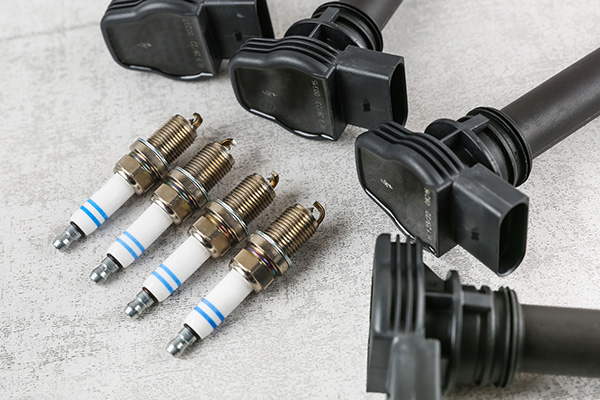
Have you ever been in a situation where your car's engine just doesn't seem to be running right? Maybe it's misfiring, or perhaps you've noticed a drop in power and fuel efficiency. These could be signs of a failing ignition coil, an essential component in your vehicle's ignition system. Understanding the symptoms of a failing ignition coil can save you from bigger, more expensive problems. These are the key signs that indicate your car's ignition coil might be on its way out.
Common Symptoms of a Failing Ignition Coil
Engine Misfires and Stalling
One of the most common signs of a bad ignition coil is engine misfires. If you notice that your engine is sputtering or if your car is stalling unexpectedly, the ignition coil could be to blame. When the coil fails to deliver enough voltage to the spark plugs, the combustion process gets interrupted, leading to misfires and stalls.
Check Engine Light
Is your Check Engine light on? This is often one of the first indicators of an issue within your car's engine system. While a Check Engine light can indicate various problems, a faulty ignition coil is a common culprit. Using an OBD-II scanner can help you pinpoint whether the ignition coil is the source of the problem.
Difficulty Starting the Car
Struggling to start your car? This could be due to a failing ignition coil. If the coil isn't generating enough voltage, the spark plugs won't ignite the fuel, making it hard or impossible to start the engine. If you frequently turn the key to no avail, it might be time to inspect the ignition coil.
Poor Fuel Economy
Have you noticed a sudden decrease in your car's fuel efficiency? A faulty ignition coil can lead to incomplete combustion, so your engine must work harder and consume more fuel. This inefficiency often translates to fewer miles per gallon and more frequent trips to the gas station.
Backfiring and Loud Engine Noises
Unusual noises coming from your engine, such as backfiring, can also indicate a problem with the ignition coil. Backfiring occurs when unused fuel is expelled through the exhaust system, which can happen when the ignition coil fails to ignite the fuel properly. This not only wastes fuel but can also cause damage to your exhaust system.
Testing and Diagnosing a Bad Ignition Coil
If you suspect that your ignition coil is failing, there are a few tests you can perform to confirm the diagnosis. Here are some methods commonly used by technicians at Rix Automotive:
Spark Test
A simple spark test can help determine if your ignition coil is producing a spark. Remove a spark plug and connect it to the ignition coil. Hold the spark plug near a metal surface and crank the engine. If you see a spark, the coil is functioning; if not, it's likely faulty.
Multimeter Test
Using a multimeter, you can measure the resistance of the ignition coil. Disconnect the coil and measure the resistance between the primary and secondary terminals. If the readings are outside the manufacturer's specifications, the coil is likely defective.
Preventative Maintenance Tips
Regular maintenance is key to avoiding ignition coil failures. Here are some tips to keep your ignition system in top shape:
Regular Inspections
Routine inspections of the ignition system can help identify potential issues before they become serious problems. Check the ignition coil, spark plugs, and wires for signs of wear and tear.
Timely Replacements
Replace spark plugs and ignition coils according to your vehicle manufacturer's recommendations. Even if they don't appear damaged, these components have a limited lifespan and should be replaced periodically to ensure optimal performance.
Use Quality Parts
When replacing ignition coils and spark plugs, use high-quality parts to avoid premature failures. At Rix Automotive, we recommend using OEM or equivalent parts to maintain your vehicle's reliability and performance.
Experiencing engine issues? Visit Rix Automotive today for a thorough inspection and ensure your ignition coil is in perfect working order!